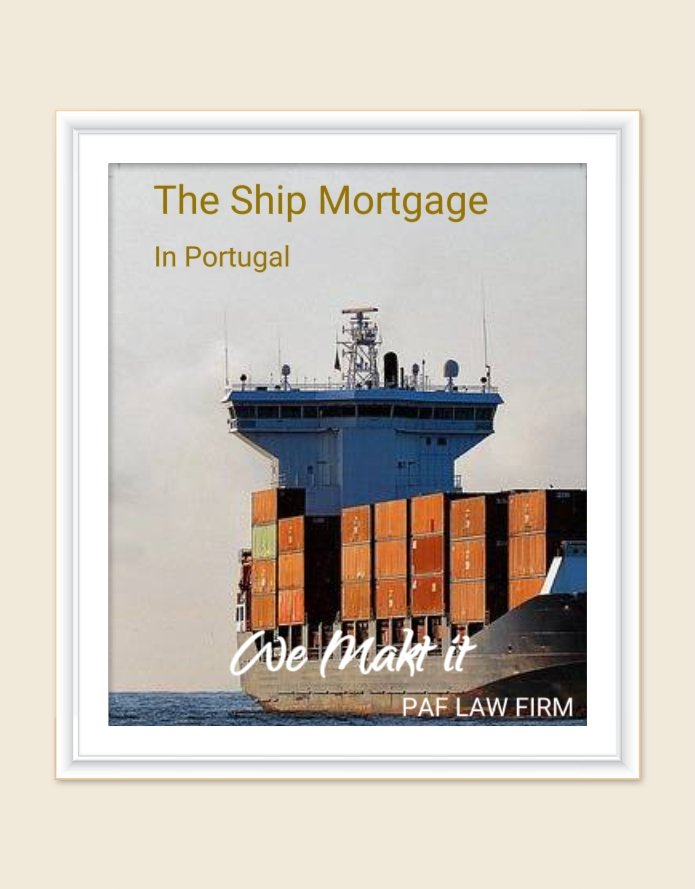A ship mortgage is a legal instrument that allows a vessel to be used as security for a debt, much like a mortgage on real estate. On 27 August 2020, Law No. 56/2020 introduced significant changes to the rules governing ship mortgages registered under the Madeira International Shipping Register (MAR), by amending Decree-Law No. 96/89 of 28 March
These new rules aim to strengthen the position of mortgage creditors while ensuring fairness to shipowners. Here’s a clear explanation of how it works.
Self-help remedies: a civil law innovation
The 2020 reform introduced by Law No. 56/2020 marks a significant innovation within the civil law tradition. The Portuguese mortgage regime —based on the continental (civil law) model — has now incorporated core features of common law jurisdictions, aligning with international standards in maritime finance.
One of the most notable developments is the express recognition of self-help remedies (auto tutela), which allow the mortgagee (creditor) to act directly in case of default provided the mortgage contract permits it.
These remedies include:
– The mortgage in possession (MIP) model, whereby the creditor may take over the management and operation of the ship;
– The power of sale, allowing the mortgagee to sell the vessel in good faith;
– The possibility for the parties to agree that any sale or encumbrance of the vessel is subject to the mortgagee’s prior consent.
These mechanisms are typical in common law systems, especially in English maritime law, but are unusual or absent in traditional civil law systems. Their inclusion in Portuguese law represents a major step towards the convergence of legal systems, giving creditors greater flexibility and legal certainty — particularly in an international context.
Remedies available to the mortgagee
If the borrower defaults, the mortgage agreement may grant the creditor a right of disposal over the vessel. This allows the mortgagee to:
– Take possession of the ship;
– Operate or navigate it;
– Sell the ship to recover the debt — as if they were the owner.
The creditor must:
– Manage the vessel diligently, preserving its condition;
– Provide accounts to the owner within the agreed timeframe;
– Act in good faith during the sale process;
– Return the vessel if the debt is extinguished before the sale occurs.
Notice, valuation, and distribution
The mortgagee must give the debtor at least 30 days’ notice before selling the vessel. The ship must be properly valued — either under the terms of the contract or by an independent expert applying reasonable commercial standards.
Sale proceeds are distributed according to creditor priority, as registered. If the sale yields more than what is owed, the surplus must be returned to the owner, after satisfying all registered and privileged claims.
At the request of the owner or any creditor, the mortgagee must also provide a full account of all payments made from the sale proceeds.
Sale restrictions and prior consent
The law now allows parties to agree that the sale or encumbrance of the ship is subject to the mortgagee’s prior approval. If requested, the mortgagee must respond within an agreed timeframe — otherwise, consent is presumed.
This contractual mechanism is widely used in common law jurisdictions and is now available in the MAR system, further enhancing creditor protection
Formalities and applicable law
To create, modify, or extinguish a mortgage:
– The act must be in writing and signed by the shipowner;
– The signature must be notarised, with reference to legal authority and representation, if applicable.
Any voluntary release or reduction of the mortgage by the creditor must also be expressed in a notarised declaration.
The parties may choose the law applicable to the mortgage, provided it does not conflict with international conventions binding on Portugal. A copy of the chosen law must be submitted with the registration, signed and translated (unless waived or replaced by an official translation).
If no choice is made, or if it is not registered, Portuguese law applies by default.
Expurgation under Portuguese law
Where Portuguese law applies, a purchaser of the vessel may request removal (expurgation) of the mortgage under Article 721 of the Portuguese Civil Code. This is only possible if the purchaser fully satisfies the creditor’s claim, including all charges and contractual obligations. In such cases, paragraph b) of that article does not apply.
Exclusion
This regime does not apply to recreational vessels (e.g. yachts) registered or to be registered under the MAR. These are governed by a separate legal framework.
Conclusion
Law No. 56/2020 introduced significant changes to the Portuguese ship mortgage regime, bringing it closer to international and common law standards. The introduction of self-help remedies — particularly the mortgage in possession and power of sale — represents a major innovation within the civil law context, offering greater flexibility and legal certainty for creditors. These reforms enhance the competitiveness of the Madeira International Shipping Register and provide robust protection for both lenders and shipowners.


